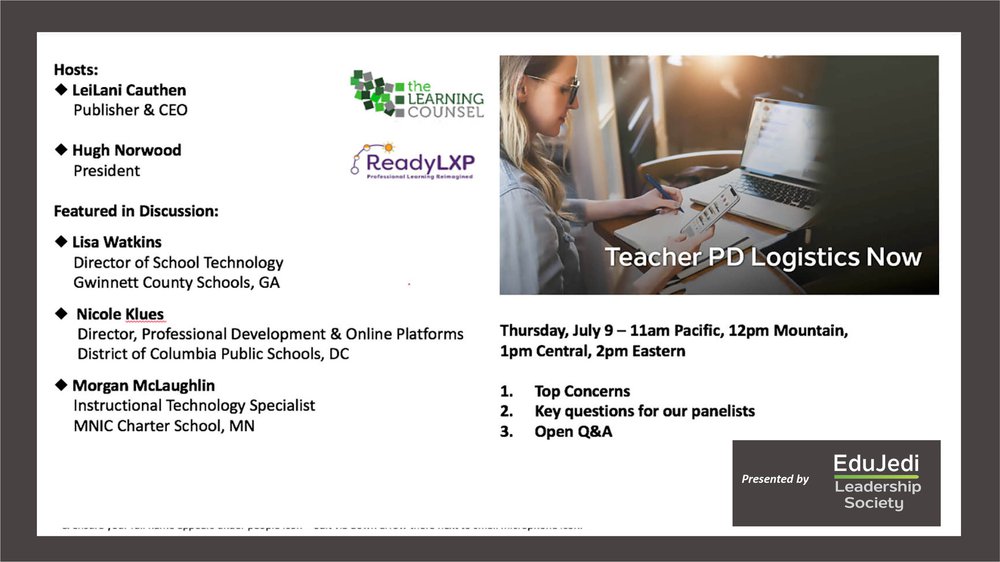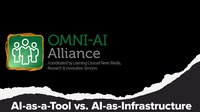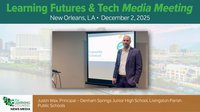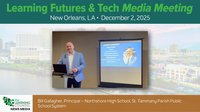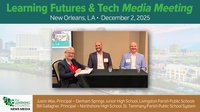Perhaps more than any time in history, our teachers and administrators need professional development to help guide them through the transition to an upcoming virtual/hybrid system of education. In this episode of the Learning Counsel’s Back to (e)School Tactics Discussions, four of America’s leading PD experts explore the logistics of professional development to see what is possible, what is working, and what will be tried in the future.
According to LeiLani Cauthen, CEO and Publisher at the Learning Counsel, “Here's, what's happening with the Learning Counsel’s 2020 National Digital Transition Survey. There was a major shift after March 15th as we gathered responses. We launched the national survey in January. The results were different before we all went into quarantine versus after. The number one thing that teachers are saying they need is to understand how they should use Core-aligned, digital courseware. There's a tremendous amount of courseware out there now. Not the discrete bits of things that people are putting with links and videos into Google docs and such. It is the full professional-grade stuff, which is everywhere now. There have been tons of schools purchasing that, or maybe they got some free licenses and companies are trying to convert them now. But people want to understand how that works and they want to understand it at the level of ‘What does this mean for my day in teaching?’ And then, number two is using supplemental digital courseware. So, both the two top issues include, ‘how do I use this?’ Because every system has a different navigational plan and it's rather wild. Then, in terms of what PD is in play by schools, the number one concern in almost 90 percent of schools is teaching practices and standards.”
Hugh Norwood, President of Ready LXP said, “We know that right now the intense focus in every school district across the country is related to safety and security of both their kids and their staffs. It is a major pressing national conversation. But we also know that there are systematic challenges to the logistics and the opportunities that are presented throughout the rest of this year specifically related to professional development. We know that professional development must evolve. The days of putting a couple hundred teachers in a big room for six or seven hours, to hear from guest speakers is probably not going to be the norm for quite a while, and it wasn't necessarily always the greatest or most research-based way to deliver a new training and new material and new information to teachers or administrators in the first place.”
Lisa Watkins is the Director of School Technology at Gwinnett County Public Schools in Georgia. According to Watkins, “This year we are actually giving students and parents the choice whether they want to do virtual or face to face learning, and they have to decide and for the most part stick to that decision through the first semester. For our PD, a lot of conversation this summer have been focused on, how do we prepare our new teachers? How do we prepare our current teachers for this environment? That's not really a hybrid environment, it's really a virtual and then a face-to-face environment. We have communication centers that have curricular resources in them. We have a group that's furiously developing best teaching standards in both of these environments. So what does it look like if you're teaching, moving to digital and if you're offering even asynchronous teaching versus synchronous teaching? Pedagogy is a part of that too. And that's through our curriculum instruction centers as well. A lot of what we're doing is virtual. We've given our new teachers access to our virtual environment early, so they can have practice this summer, getting things going if they have the opportunity to start developing that curriculum.”
Nicole Klues, Director, Professional Development and Online Platforms at D.C. Public Schools said, “The district decided to end the school year for our students three weeks early; traditionally DCPS runs through the third week in June. So, with that decision for students to get out the end of May, teachers had a week off. And after they had that week off, we planned a virtual two-week professional development opportunity for them. Our two-week virtual event in June was reopened strong and the idea and the objectives were a combination of three things, leading successful hybrid learning both at home and at school, cultivating wellness through trauma-responsive schools, and focusing on relationships, routine and resilience in the COVID era. And once the schools have learned this, how do they apply best practices within their school community? Everybody has different schedules right now, they're juggling different things. So, we had a combination of required live online events, leveraging Microsoft Teams, which is one of our digital equitable power tools. We had upwards of 6,000 people each morning for two weeks. We ended with secretary King, which was very, very exciting.
Morgan McLaughlin, Instructional Technology Specialist at MNIC Charter Schools said, “We were looking at trainings right away for a lot of our staff because we had staff who really hadn't updated some of their teaching styles in 10 or 15 years. Some were very not interested in incorporating tech and now, suddenly, they had to. We did a lot of different on-the-fly kind of trainings. One of the things I found most useful was doing one-on-one trainings with staff who had a question and I would record that training and then put that into our LMS and make that available to other staff who wanted to go through the trainings. It was a very organic, very natural. We started brainstorming when it came to PDs for this upcoming year, we looked at what our students needed, where our staff is right now, and what our staff needed. We did this through a lot of surveys, through a lot of looking at the data, our single sign on and our LMS. And then to make life a little simpler, I started looking at who are our experts?”
Watch the video
With no time to loose, this very detailed, wide ranging discussion is full of professional development strategies that you can bring back to your own district immediately.

